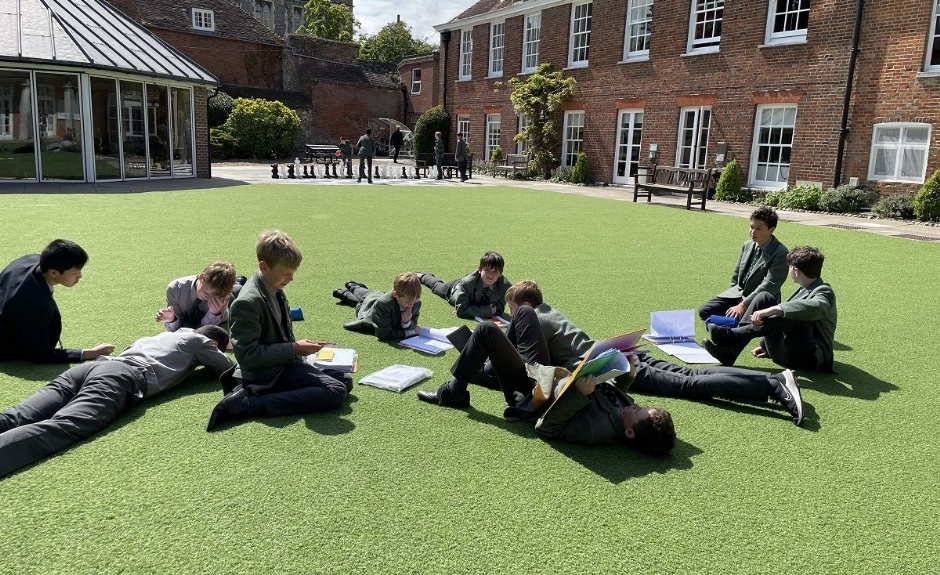What is academic success?

I've recently had time to reflect on what academic success means. To see Year 8s, some of whom I have known for a very long time, wait nervously for their results in the cloisters at Winchester College, or in the Pilgrims’ Hall, it is hard not to think about how much they have achieved and how I, and we as an institution, feel about them.
The first thing to note is that we are very proud of all of them (including our Common Entrance boys, of course, who have a few weeks to wait until their chance to shine). Some of their academic journeys have been smooth, whilst others, when you know the whole story, are extraordinary. All make us feel proud.
But what is academic success? I can tell you that it is definitely NOT how many names are listed on the honours boards (though our record on that is excellent, and we are rightly proud of it!); if you do things right, the laurels should follow naturally. No, success is reckoned according to that nebulous beast: progress. What does it look like? How do we measure it? Questions academic consultants make a fortune out of! For me, it is really pretty simple. I don’t know a single teacher who isn’t addicted to the ‘ahh, I see’ moment which we are privileged to be part of. Enthusiasm is the baseline because if the boys aren’t invested, they won’t react like that. So our primary purpose as educators (and parents) is to inculcate a passion for learning. From that comes the desire to improve, and from that the magic concept progress that we all chase so hard; from there the results will follow (be that passing your French test or gaining a King’s Scholarship to Eton). Potential will be fulfilled (which is all we all really want).
How does it come about? It is not through tutoring or ‘hothousing’; that can have an impact in the short term, but the effects rarely last. It is a combination of modelling, high expectations and passion for the subject. Expert teachers know this; we lead the boys (we are teachers, not facilitators), we expect much from them, and we talk with gusto about the things we are interested in (sometimes too much in my case!). It is no surprise that in John Hattie’s famous list of effective educational methods (from Visible Learning) most of the top ten involve pupil engagement and teacher efficacy.
Crucial to all this is having teachers who are passionate, and boys who want to learn. I believe strongly that Pilgrims’ has both in abundance. From those, it follows naturally that our boys can fulfil their potential.
In the context of those Year 8s, seeing a Pilgrim go off to their Senior School with both good learning habits and a desire to learn is what this job is all about. Whatever the results that appear in the coming weeks, from my point of view the Year 8 Pilgrims have already ‘passed’; whilst waiting (understandably) nervously for their results, they should do so knowing that they have already run a huge distance, and have effectively already won the race – they have a passion for learning that I hope they will carry with them for the rest of their life.
That is what we prepare them for. That is academic success.
Alistair Duncan
Second Master
The Pilgrims' School
image: Boys revising on the Quad








